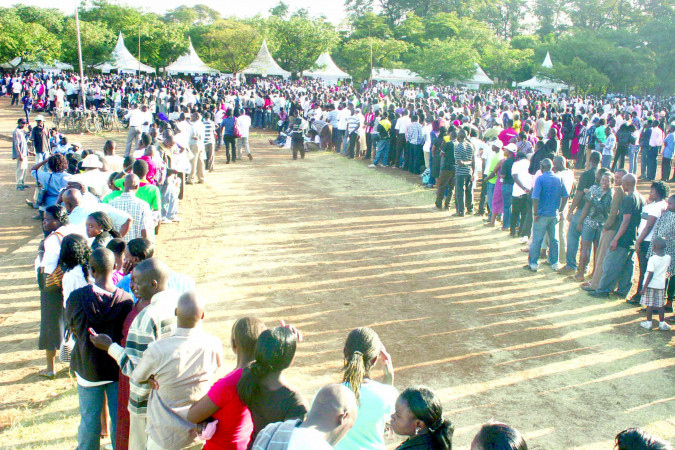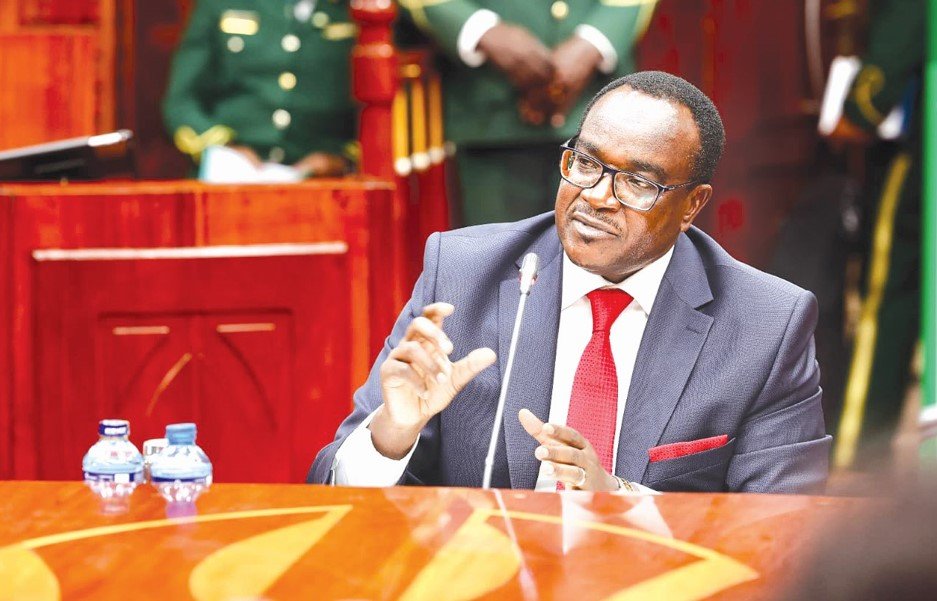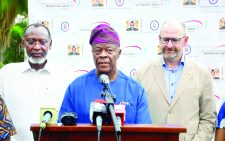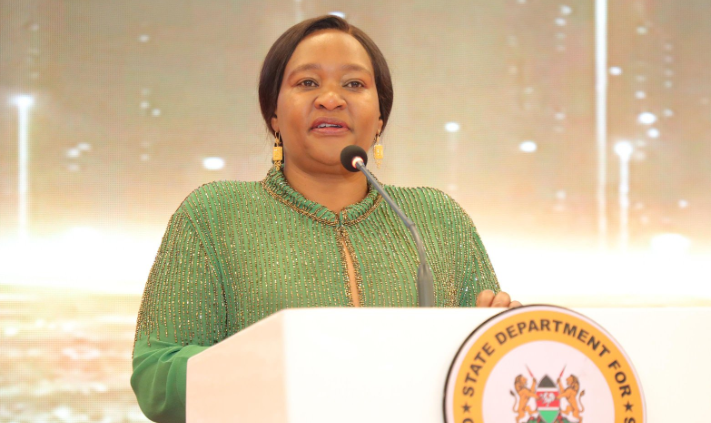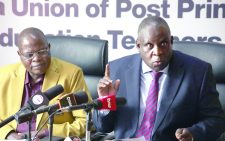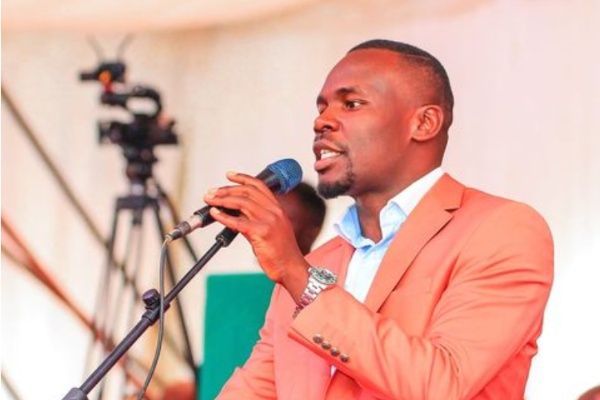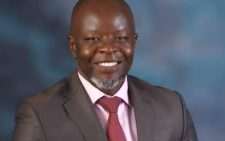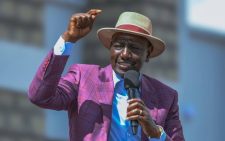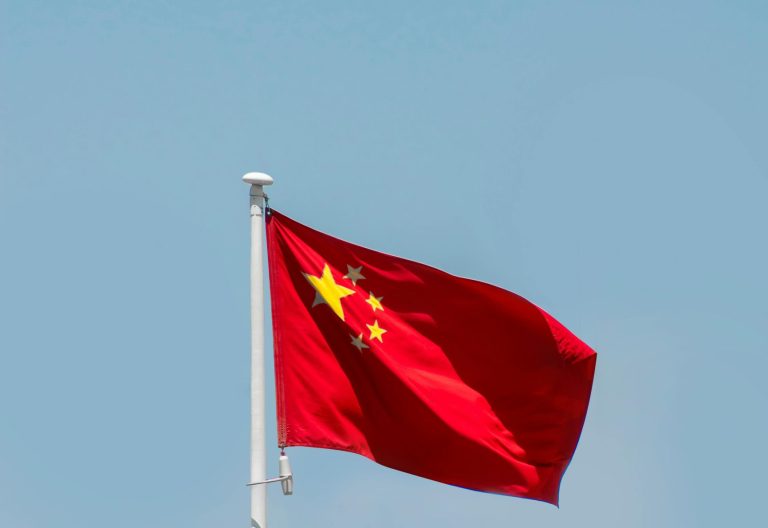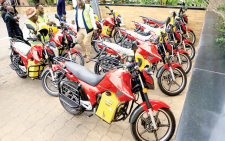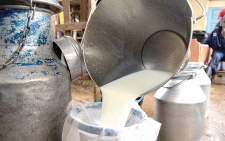We’re not ready to conduct 2022 polls, says IEBC
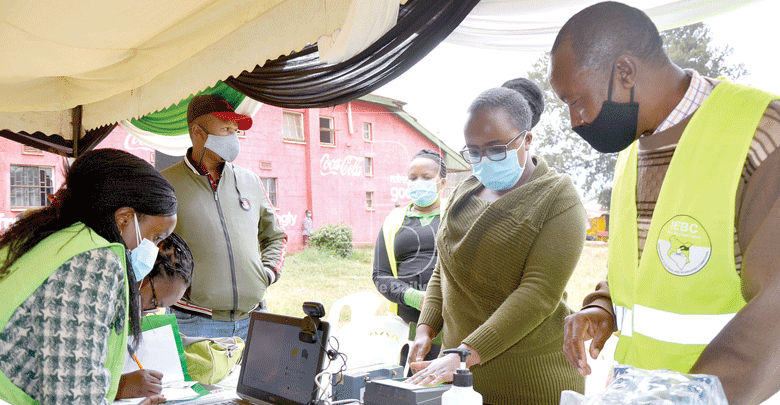
Hillary Mageka @hillarymageka
Preparations for next year’s General Election were yesterday thrown into fresh focus after the national electoral agency revealed that it faced numerous challenges ahead of the exercise.
The Independent Boundaries and Electoral Commission (IEBC) cited inadequate budgetary allocations, short timelines and several legal hurdles as major impediments towards overseeing a credible, free and fair general election.
In particular, IEBC says constrained budget allocations had stalled priority activities including maintenance and update of election technology.
Due to financial and logistical challenges, IEBC stopped short of ruling out reviewing electoral boundaries before the 2022 next general election.
Dealt a blow
Insufficient budgetary allocations had also dealt a major blow to the commission’s continuous voter registration, voter education and public awareness that are key to a credible general election.
Besides, IEBC says, the global Covid-19 pandemic had impacted negatively on its activities that necessitated scaling down of various programmes including outreach and activities associated with by-elections.
Appearing before the Senate committee on Justice, Legal Affairs and Human Rights yesterday, IEBC chairman Wafula Chebukati and acting chief executive Hussein Marjan, said the commission requires a total of Sh2.7 billion to pay audited pending bills as at June 30, 2019.
Out of the amount, the commission intends to pay Sh1.6 billion to legal firms and Sh1.03 billion owed to ICT service providers.
“The commission, therefore, appeals to Parliament and National Treasury to provide funds for electoral activities throughout the electoral cycle,” Chebukati recommended.
His sentiments were supported by the Marjan, who said the commission had been choked by pending bills, with some vendors bashing them while others had threatened to cut off their services. Several other firms had threatened never to offer services to the commission in the next polls.
“We are told by the National Treasury to clear pending bills by June 30, 2021, but we don’t have the funds.
We need these resources if we are to deliver a fair, transparent and credible election,” Marjan said.
Nyamira Senator Okong’o Omogeni, who chairs the committee, said it was unfair for the commission not to pay for services rendered by external firms.
“This is not only sabotage but gross,” Omogeni lamented.
Chebukati ruled out creation of new constituencies before next year’s elections, saying the earliest the boundary delimitation process can be completed is around March, 2023.
The Constitution provides for the review of the names and boundaries of constituencies and wards at intervals of not less than eight years, and not more than 12 years, with any review being completed at least 12 months before a general election of Members of Parliament.
According to Chebukati, heightened preparations for the 2022 general election and delimitation of boundaries, all of which are key to the polls, were competing for limited and scarce resources.
“Due to the complexity of the delimitation process as well as the fact that the commission will be conducting a general election in 2022, our position is that the final year by which the review of electoral boundaries should have been completed is March, 2023,” he said.
Nairobi Senator Johnson Sakaja, a member of the committee, accused Chebukati’s team of laxity in undertaking delimitation of boundaries.
“What are you telling the people of Kasarani constituency whose population is only second to Juja constituency, that they will not get equitable representation next year?” Sakaja posed.
“Are you simply saying even if the appellate court rules in favour of the BBI (Building Bridges Initiative) appeal and we have a referendum, we can only have new electoral units in 2023?” Makueni Senator Mutula Kilonzo Junior charged.
In response, Catherine Kamindo, the acting director for Research Boundaries and Development, noted that should the appellate court pave the way for a BBI referendum and it becomes law, the commission will liaise with Survey of Kenya to delimitate the new 70 constituencies as spell out in the constitutional amendment bill.
“Should the BBI amendment bill become law, as a contingency measure, we will work to have in place the 70 constituencies as envisaged in the bill,” Kamindo said, contradicting the submission by the IEBC boss who reiterated that any new electoral unit can only be in place by March 2023.
Electoral units
Sharing Chebukati’s sentiments, Marjan, opined that the commission had two running programmes, preparation for the 2022 General Election and the boundaries delimitation process, both competing for the same resources.
“We have been having challenges of getting funds from the National Treasury to start boundaries delimitation; even if the resources are availed now, we are required to conclude demarcating the new electoral units in less than a year and use the same for the August 8, 2022,” Marjan said.
On his part, Chebukati noted that despite scarce resources, his team had conducted data analysis of the 2019 National Population and Housing Census published by the Kenya National Bureau of Statistics.
In addition, the commission is piloting a study for the review and update of boundaries geo-database as well as started data collection.
The chairman, however, said that budgetary constraints had stopped the commission from undertaking institutional reforms that could allow smooth elections in 2022.
Chebukati cited review of the ICT system that had been scheduled two years ago and delayed continuous and mass voter registration, both of which had stalled.
“Without resources, we cannot conduct voter registration and sensitise Kenyans to come out to vote in large numbers just as we did in 2017 elections,” he said.
This forced Makueni Senator Mutula Jr to ask: “With all these developments about lack of funds and yet to be delimitated boundaries, are you prepared to conduct the 2022 General Election?”
The IEBC boss said the agency had asked Parliament to allocate them at least Sh40 billion for preparations for the polls but their budget had been slashed down to Sh33 billion, leaving a deficit of Sh7 billion.
Chebukati said the money was to be allocated in two financial years, 2021/2022 and 2022/2023, to facilitate audit of the ICT systems, mass voter registration and boundary delimitation.
In the new financial year 2021/2022, the commission was allocated Sh14.5 billion for elections which includes Sh2.7 billion for mass voter registration that should have started, with the nation-wide launch expected in December.
“Voter certification will be done after mass voter registration around May next year before we embark on the process of weeding out dead voters and other anomalies,” Chebukati noted.
“After that we shall map polling stations. We expect the number of polling stations will increase to roughly about 10, 000 from the exercise,” he said, adding that without resources it would be difficult to undertake the process.
During the meeting, the commission disclosed that compared to the period covering 2013 to 2017 when the commission registered five million voters, since 2017 to date, the commission had registered a paltry 140, 000 voters.
Marjan told members that the figure is a collective total registered from last year to date singling out the counties that have had by-elections.
According to him, the low turnout in by-elections was attributable to a lack of budget and insufficient voter education.
“Lack of budget is a big problem to our staff who have been forced to use their own money to go out and register people,” the CEO said.
Members of the committee failed to reconcile the drop in number of voters with Senator Sakaja accusing the committee of adopting “a wait and see attitude”.
“That is a very serious gap, something is not adding up. Can the CEO explain how many people have they lost and how many have they gained?
Are you really prepared for the upcoming elections?” Mutula posed, adding that Kenyans were concerned with the commission’s ill preparations for the 2022 polls.


